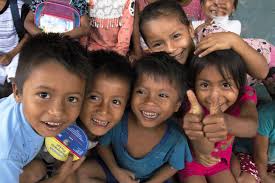Neurobiological Changes Produced by Child Abuse Perpetuate the Cycle of Violence, Essay Essay
Main Article Content
Abstract
Purpose: We hypothesized that neurobiological changes produced by child abuse (CA) perpetuate the cycle of violence. We searched for reports showing neurobiological and neuroendocrine changes in relation to children who suffer/have suffered CA.
Recent Findings: Chronic stress in children causes lesions in the limbic system that affect emotions and memory. Genetic variants, such as those found in the serotonin transport gene, appear to be the cause for the development of neurobiological resilience.
Excerpt: CA at an early age has devastating consequences on a child's brain, resulting in multiple psychopathologies and most importantly, perpetuating or repeating cycles of violence. This process occurs not only due to learned behaviors but above all, due to neurobiological changes experienced by abused children.
Downloads
Article Details

This work is licensed under a Creative Commons Attribution-NonCommercial 4.0 International License.


